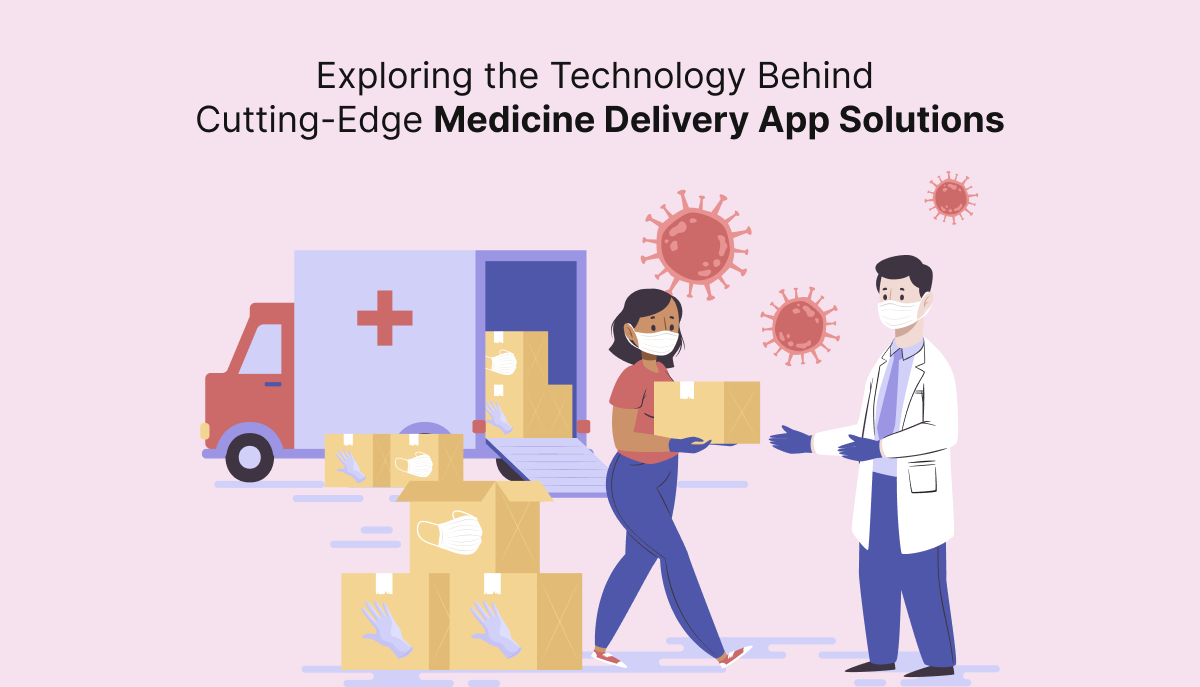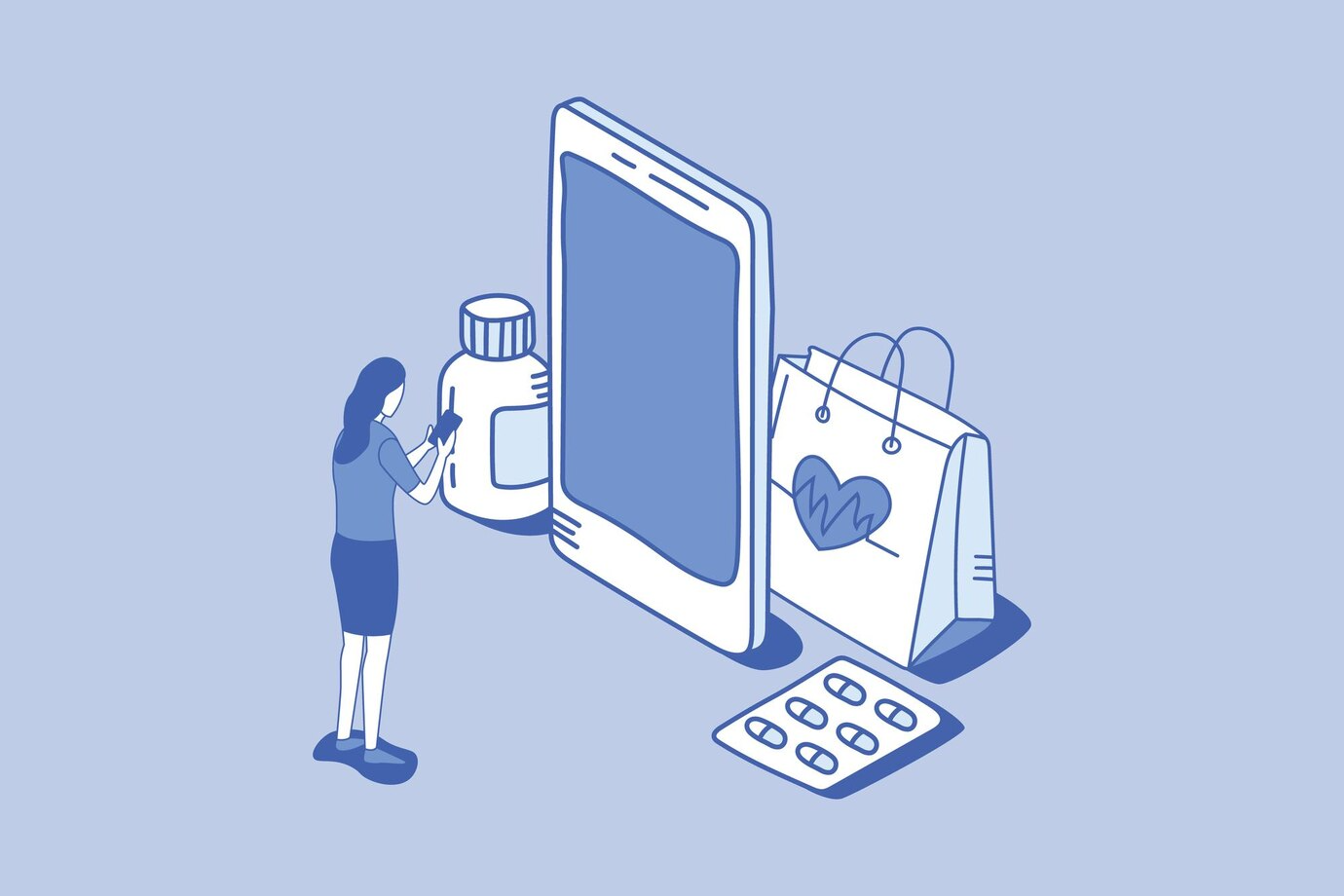Exploring the Technology Behind Cutting-Edge Medicine Delivery App Solutions

The healthcare industry has seen a rapid shift toward digital solutions, especially in the way medicines are delivered to patients. A medicine delivery app solution is no longer a luxury but a necessity in today’s busy and convenience-driven world. These apps have transformed how patients access prescribed medications, making it easier for them to get the treatment they need without stepping out of their homes.
Behind these efficient and user-friendly apps lies a complex network of technologies that work together to ensure fast, secure, and accurate medicine delivery. This blog explores the essential technologies that power modern medicine delivery apps, the features that make them effective, and what makes these solutions stand out in today’s healthcare landscape.
The Growing Demand for Medicine Delivery Apps
The rise in demand for online healthcare services, particularly after the COVID-19 pandemic, has highlighted the importance of medicine delivery apps. Patients are increasingly relying on these platforms for the safe and timely delivery of their medicines. For pharmacies and healthcare providers, adopting this technology has become crucial to stay relevant and meet patient needs.
But what makes these apps so reliable and efficient? The answer lies in the technology stack that supports them.
Core Technologies Powering Medicine Delivery Apps
Mobile App Development Frameworks
Creating a medicine delivery app starts with choosing the right mobile app development framework. Popular frameworks like React Native and Flutter enable developers to build apps that run smoothly on both Android and iOS devices. These frameworks offer speed, flexibility, and cost efficiency by allowing developers to maintain a single codebase for multiple platforms.
Cloud Computing
Cloud computing plays a vital role in the scalability and storage capabilities of medicine delivery apps. Cloud services provide a secure and scalable environment for storing user data, prescription records, and transaction history. This ensures that the app can handle a growing number of users without performance issues.
Cloud platforms like Amazon Web Services (AWS), Microsoft Azure, and Google Cloud are commonly used to provide reliable backend support, data storage, and app hosting services.
APIs for Seamless Integration
Application Programming Interfaces (APIs) are essential for integrating various functionalities into the app. For example, payment gateways are integrated through APIs to facilitate secure transactions. Similarly, GPS APIs enable real-time order tracking, while APIs for pharmacy databases help in checking medicine availability.
These APIs ensure that different features of the app work cohesively to provide a smooth user experience.
Artificial Intelligence and Machine Learning
AI and ML technologies are increasingly being used to enhance the capabilities of medicine delivery apps. They help in:
- Recommending alternative medications when a prescribed drug is out of stock
- Predicting user needs based on past orders
- Sending personalized reminders for refills
- Analyzing user behavior to improve the app experience
AI-driven features make the app smarter, more responsive, and user-friendly.
Data Security and Encryption
Handling sensitive health information requires stringent security measures. Medicine delivery apps use advanced encryption techniques to protect user data. Secure Socket Layer (SSL) encryption ensures that all data transferred between the app and the server is secure.
Additionally, two-factor authentication and secure login processes help safeguard user accounts. Compliance with healthcare data regulations like HIPAA (Health Insurance Portability and Accountability Act) ensures that the app adheres to the highest standards of data privacy.
GPS and Real-Time Tracking
Real-time tracking is a key feature of modern medicine delivery apps. GPS technology allows users to track their orders in real time, enhancing transparency and trust. Delivery personnel also benefit from GPS navigation, ensuring that deliveries are completed efficiently and on time.
Payment Gateways
Integrating secure and versatile payment gateways is essential for any medicine delivery app. Popular payment solutions like Stripe, PayPal, and Razorpay allow users to choose from various payment methods, including credit/debit cards, digital wallets, and net banking.
A seamless and secure payment experience builds customer trust and encourages repeat purchases.
Read More: Custom Healthcare Software Development Solutions
Essential Features in Cutting-Edge Medicine Delivery Apps
User-Friendly Interface
The app should have a clean and intuitive interface that allows users to easily browse medicines, upload prescriptions, and place orders without confusion.
Prescription Upload and Verification
Users must have the option to upload prescriptions by simply taking a photo or uploading a file. Pharmacists on the backend verify these prescriptions to ensure the accuracy of the order.
Search and Filter Options
Users can search for specific medicines or browse through categories. Filters help narrow down options based on brand, price, or availability.
Notifications and Alerts
Push notifications keep users informed about their order status, upcoming refills, and promotional offers.
In-App Chat Support
Having an in-app chat feature allows users to ask questions related to their medicines or orders, improving the overall customer experience.
Inventory Management
Pharmacies need a robust inventory management system integrated into the app to monitor stock levels in real time. This helps prevent stockouts and ensures that users only order available medicines.
Future Trends in Medicine Delivery Apps
Telemedicine Integration
Integrating telemedicine features allows users to consult with doctors directly through the app, receive prescriptions, and order medicines—all in one platform.
Blockchain for Data Security
Blockchain technology is being explored for enhancing data security in healthcare apps. It ensures that health records and transactions are tamper-proof and transparent.
Drone Deliveries
While still in its infancy, drone deliveries could revolutionize medicine delivery, especially in remote or hard-to-reach areas, by ensuring faster delivery times.
AI-Powered Health Insights
Future apps may offer health insights and recommendations based on user data, helping users manage their health more proactively.
Conclusion
Medicine delivery apps are a testament to how technology can revolutionize healthcare services. From real-time tracking and secure payments to AI-driven recommendations and telemedicine integration, these apps offer a comprehensive solution for modern patient care.
For pharmacies and healthcare providers looking to expand their services, investing in a well-designed and secure medicine delivery app is essential. Partnering with a reliable clone app development company can help bring your vision to life with the latest technologies and features tailored to your business needs.
As technology continues to evolve, medicine delivery apps will only become more advanced, making healthcare more accessible, efficient, and patient-friendly.

Frequently Asked Questions
What technologies are used in medicine delivery apps?
Medicine delivery apps use technologies like cloud computing, APIs, AI, GPS tracking, data encryption, and mobile app development frameworks like React Native or Flutter.
How do medicine delivery apps ensure data security?
These apps use SSL encryption, two-factor authentication, and comply with healthcare regulations like HIPAA to protect sensitive user data.
Can medicine delivery apps integrate telemedicine features?
Yes, many modern apps are integrating telemedicine services, allowing users to consult doctors, get prescriptions, and order medicines within the same platform.
How do real-time tracking features work in these apps?
GPS technology allows users to track their medicine deliveries in real time, providing transparency and accurate delivery timelines.
How can I develop a medicine delivery app?
To develop a medicine delivery app, you should collaborate with a trusted app development company that understands the healthcare industry's specific requirements and can build a secure, user-friendly, and feature-rich solution.
- Art
- Causes
- Crafts
- Dance
- Drinks
- Film
- Fitness
- Food
- Jocuri
- Gardening
- Health
- Home
- Literature
- Music
- Networking
- Alte
- Party
- Religion
- Shopping
- Sports
- Theater
- Wellness
- IT, Cloud, Software and Technology



